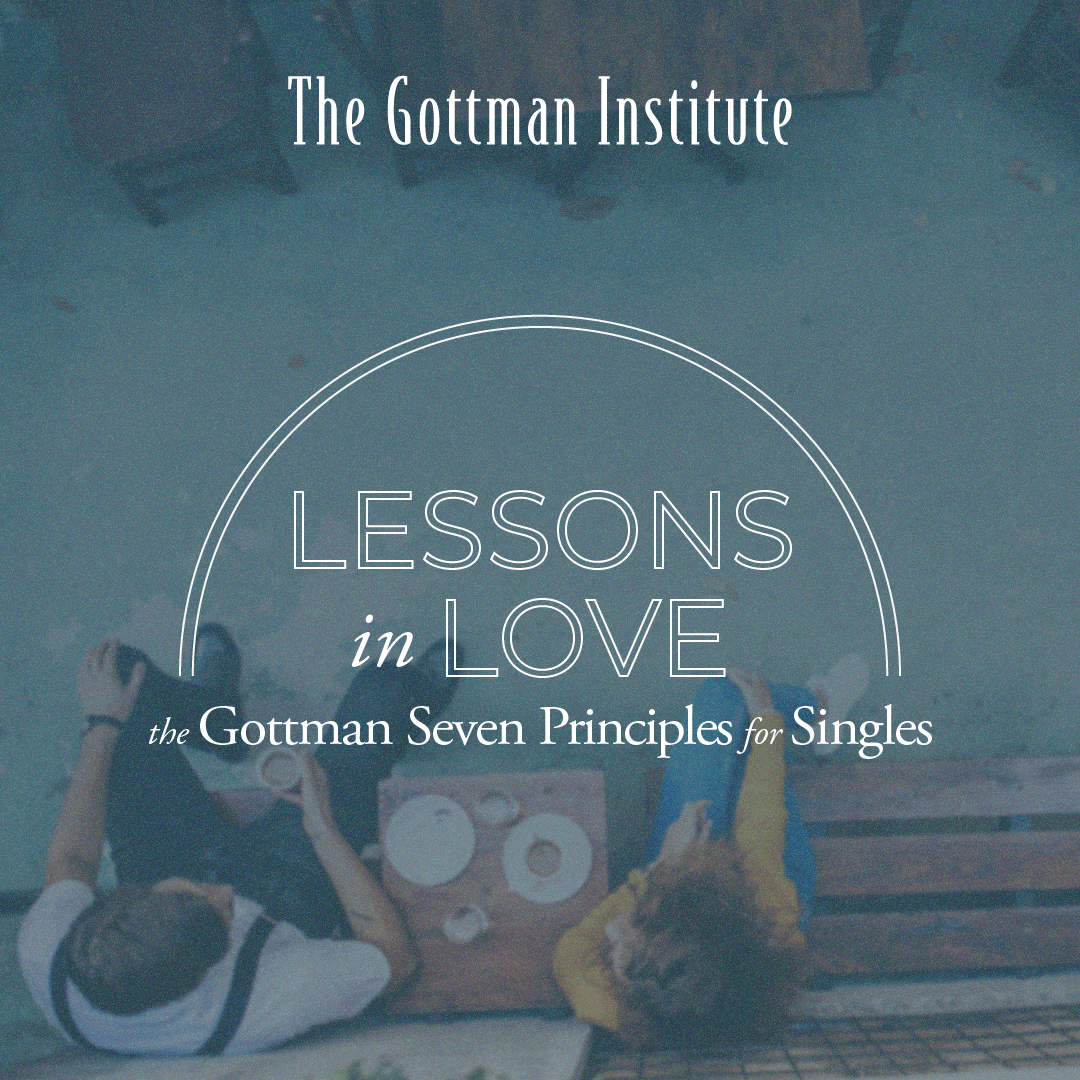Understanding why you are still single requires looking at how you approach relationships and what kind of partner you are. This type of self awareness and emotional intelligence is not necessarily innate especially if you did not have a healthy relationship modeled for you growing up. Many singles need help learning the skills that are key to building successful romantic relationships. So let’s begin with a basic understanding of romantic love.
The 3 phases
Dr. John Gottman found that there are three distinct and natural phases of love. Along with these phases are several ‘choice points’. These are times in the relationship when you will choose to go deeper into the relationship or take a step back.
Honeymoon stage
This stage is also referred to as limerance, a phase that occurs when you first start dating someone you feel a spark with. You may feel an overwhelming infatuation and chemistry and want to spend all of your time with them. Your body is releasing oxytocin ‘the love hormone’ and elevation of dopamine, which controls the brain’s reward and pleasure centers. This phase, where you are constantly thinking about the person and wanting to be with them, can last weeks, months or even a year or two.
Trust stage
The trust phase develops when your partner begins to act and think in ways that benefit you instead of themselves. Dr. Gottman says that trust means knowing that “my partner has my back and is there for me.” Trust is that particular state that exists when each person acts in their partner’s best interest.
We build trust by being there for one another and repairing poor communication. This phase is also where the most fighting occurs but is critical to a relationship moving forward successfully. If you dislike conflict pay special attention to this stage as it may be a time that you tend to leave relationships.
Commitment stage
Commitment means believing (and acting on the belief) that the relationship with this person is your lifelong journey, for better or for worse. This means that if things get difficult, both partners will work together to try to improve it. It involves cherishing your partner’s positive qualities and nurturing your gratitude for them. It means not thinking, “I am here until someone better comes along,”
Once you understand the phases of relationship and love, you can identify when most of your relationships tend to end and what stages are the most difficult for you. There are many reasons you may still be single. Let’s take a look at some common reasons and dive deeper into what may be preventing you from having a long term relationship.
Common Reasons for Staying Single
Dating isn’t a priority
Let’s be honest. Most people don’t enjoy the process of dating when their goal is being in a long term relationship. And so while there are an endless variety of dating apps, dating isn’t a priority for many people. There has been some research to suggest that dating apps offer so many options that people develop a mindset that there is always someone better out there. The bottom line is that if you want to meet someone, you must make the effort to either go on dates or go out with friends where you can potentially meet people.
We have seen a trend among women who are intentionally choosing to stay single. They are focusing on their careers, their individual wellbeing and shifting to independently finding happiness.
Fear is holding you back
Fear is a powerful emotion. It can be triggered by a lot of things, and meeting new people and starting relationships is at the top of the list. Perhaps you have been ghosted by previous boy/girlfriends. Or maybe you have experienced rejection recently. These are all reasons that you may be fearful to enter the dating scene again. When you choose love over fear you are putting yourself in a vulnerable position. However, you must be open in order to form healthy and meaningful connections. Once you have determined a potential partner is ‘safe’, it is important to allow space for the relationship to deepen which means letting some of your walls down.
You haven’t met the right person
This may be one of the most common sentiments among the still uncommitted. However, if you haven’t met the right person, maybe it’s time to look at a couple of things that you do have control over. You may consider where and when you tend to meet people as well as who you are typically attracted to. Changing any of these variables can lead to different outcomes. While it is not necessary that you have the same interests as a potential partner, connecting with others who enjoy similar activities can be an easier way to meet people. It may also be complete true that you haven’t met the right person, but knowing that there is not just one right person for you is important.
You keep dating the wrong kind of people
Perhaps you tend to gravitate towards people with high mate value. However, if you want a successful long term relationship, it is important to move past someone’s initial attractiveness and physical attributes to know if they have the emotional intelligence to be in a healthy committed relationship.
From the book Safe People Dr. Henry Cloud and Dr. John Townsend. Here are some of the ‘safe behaviors’ to be looking for when dating.
SAFE BEHAVIOR | UNSAFE BEHAVIOR |
Allow you to feel like an equal | Feel like a parent of child |
Behaviors are consistent over time | Inconsistent and unpredictable |
Respecting your ‘no’ | Not accepting boundaries |
Showing empathy and acting on it | Solely concerned about themselves |
Admit when they are wrong | Never accept fault |
You Have No Standards at All
Perhaps you are so open that you don’t have any standards. While this is not necessarily a bad quality, it will likely not lead to the results you want. There are some guidelines that you can follow that will help you filter out people who are not worth your time and energy.
Dr. Gottman has done research on trustworthiness and found the following five criteria to help separate those who are trustworthy from the shysters. (These five criteria are from the book What Makes Love Last (2012)).
1. Honesty
Do not trust someone who lies to you. Don’t come up with excuses for why they lied or talk yourself out of your doubts.
2. Transparency
Make sure they are an open book and that they invite you to meet their family or chosen family and friends. Keep in mind some people may not be in touch with their family of origin for many reasons.
3. Accountability
Do they keep their promises and follow through on their commitments? Do they ask you to keep your promises and have integrity in your actions?
4. Ethical Actions
If you are detecting immoral actions or if you are uncomfortable with their morals, move on.
5. Proof of Alliance
If they can demonstrate that they have your back, even in small ways, that is a good sign. Do they take your best interests to heart instead of acting only out of self interest?
Holding onto the past
If you are still grieving the loss of a past relationship or have not accepted that it is over, you may not be ready to start a new one. If you find yourself in this position, counseling can be helpful and necessary to move you into a better emotional space. Once you have processed past relationships and perhaps examined what went wrong (and right), you will be much more likely to successfully start a new relationship.
Learn key relationship skills
If you have not had the benefit of parents modeling a healthy relationship, it may be difficult to know how to be successful in relationships.There are some key basic skills to get started beginning with a strong foundation of friendship. Here are a few of the most important tips:
- Treat your partner like a good friend (because hopefully they are!) Being curious and wanting to learn about your partner. Dr. Gottman calls this Love Maps.
- Fight right. Treat your partner with respect and kindness even during arguments. Learn how to express your feelings and state your needs without accusing or insulting your partner.
- Learn how to reconnect after you fight or are apart by making repairs and developing rituals of connection.
Disadvantages from societal biases
Stigma still exists around being single. There are beliefs and attitudes about people who are not in a committed relationship. People make assumptions about your character and more if you have ‘failed’ in the relationship realm. There are also many economic disadvantages to being single in terms of health care, taxes, and housing which can result in challenges in the dating world.
You Aren’t Open-Minded
Meeting new people and potential partners requires some openness. It requires a certain amount of vulnerability on your part and curiosity about others. It is more important to be interested in your date rather than trying to be interesting yourself, a concept that holds true for friendships as well as dating.
Think of how good it feels when a friend or date asks you deep and meaningful questions about you and your life. It feels really good, right? Try this on your next date and prepare to be amazed at the positive result. Doing this can also help cut down on nerves because if you are focused on the other person and learning about them, you don’t have to worry about trying to look interesting yourself. Unique value emerges slowly and over time through shared experiences and getting to know each other, so consider taking the time to really getting to know the person.
Why Are You Still Single FAQs
Why do some people remain single despite wanting a relationship?
All of the reasons above may play a role in still being single. The healthier your individual mental health is, the more likely you will enter into a successful relationship. If you feel unsure about your emotional intelligence or your ability to be in a relationship, there are steps you can take. Seeing a therapist might also be a good option.
How does past trauma affect current relationship dynamics?
Past trauma can absolutely have a significant impact on your current relationship. However, if you are willing to address it, it does not have to be a barrier to being in a healthy relationship. Past trauma might cause you to put up walls to protect yourself which can prevent genuine connection. You may have also developed unhealthy coping strategies. The more you can have experience with people who are emotionally safe, the more you can train your nervous system to not experience everything as a potential danger.
Is it normal to choose to be single?
It’s hard to stay what is ‘normal’, but it is certainly more common now to choose to be single especially among women. That being said a healthy long term relationship has been found to positively impact people’s health. Ultimately connection is what most humans crave, and when we find that in a healthy way, everyone benefits.






